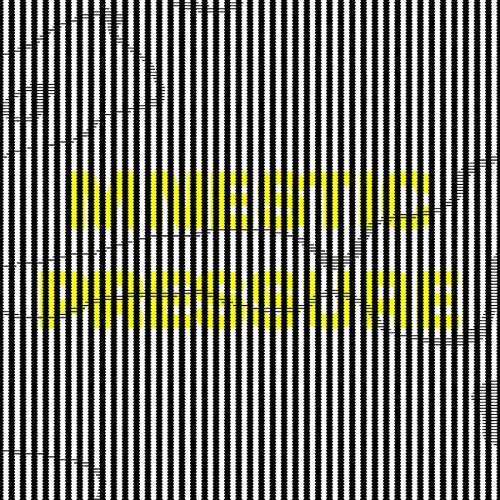
Lee Gamble
Mnestic Pressure
Release Date: Oct 20, 2017
Genre(s): Electronic, Techno, Pop/Rock, Club/Dance, Experimental Techno, Experimental Ambient, Jungle/Drum'n'Bass, Experimental Jungle
Record label: Hyperdub
Music Critic Score
How the Music Critic Score works
Buy Mnestic Pressure from Amazon
Album Review: Mnestic Pressure by Lee Gamble
Excellent, Based on 5 Critics
Based on rating 9/10
As you might expect from someone who's released on Opal Tapes and L.I.E.S., Max Raviz (aka Patricia) doesn't deal in crisp and shiny sounds: this record is full of tape hiss, fuzzed-out textures and things lurking in the sonic shadows. This sort of lo-fi electronica has become as much of a cliché as male techno producers using female names lately - but Raviz does it with panache and uses the blurring and buzzing as brain-tickling instruments in their own right, rather than just affectations. There's an undeniable funk to his electro and acid constructions and, while all the murk and gloom can occasionally get to you, it's worth pushing through: the weirder these tracks get, the better they are.
Based on rating 8/10
Lee Gamble's acclaimed series of releases for Bill Kouligas' Pan label have typically explored the space between the ambient interludes on jungle records, or else sounded like techno records after they've been melting in a furnace room for a while. After starting the forward-thinking club imprint UIQ in 2015, helping to foster the careers of artists like Lanark Artefax and Zuli, Gamble surfaced on Kode9's lauded Hyperdub label in 2017. Mnestic Pressure occupies a similar fuzzy, nebulous space as Gamble's earlier releases, filled with melted chords and billowing textures, but the beats on this one are generally harder and more fractured.
Based on rating 8/10
A jump from the oblique and experimental PAN imprint to the relatively orthodox Hyperdub label signalled a change for Lee Gamble and his oeuvre. Having released a trio of drifting, introspective and off-the-grid LPs, Gamble pondered the recent socio-political climate and decided to react by invigorating his sound; his desire was to ratchet up the sonic pressure without sacrificing too much of what makes his music singularly his own. While his prior output focused on what the producer and DJ has described as the signal or idea of the ….
Based on rating 7.0/10
In the closing chapter of Stanislaw Lem's 1961 sci-fi psychodrama Solaris, the protagonist, Kris Kelvin, finally ventures out from his space station to explore the titular ocean planet--a sentient organism which seems to be testing its human visitors by mimicking their most powerful memories. He sets his course for one of the many "mimoids" the planet creates, towering constructions that rise from its depths before dissolving back into the sea. Upon examination, the structure feels oddly familiar, like an ancient city in ruins--a "twisting labyrinth of streets partially blocked by rubble: their steep winding descent toward a shore washed by clammy foam.
Opinion: Excellent
Mnestic Pressure is an intriguing title for Lee Gamble's fourth solo album. 'Mnestic' refers to the Greek word for memory (as in 'mnemonic'), so is Gamble feeling the pressure of his own memories, or the collective memory of the electronic genre he operates in? For a genre so often associated with words like 'futuristic' and 'modern', electronic music is often a slave to its own past rather than a beacon illuminating the future. On Mnestic Pressure, Gamble seems to be trying to unravel the various contradictions and divergent pathways that have emerged in the digital age, to come up with something cohesive and definitive.
'Mnestic Pressure'
is available now

